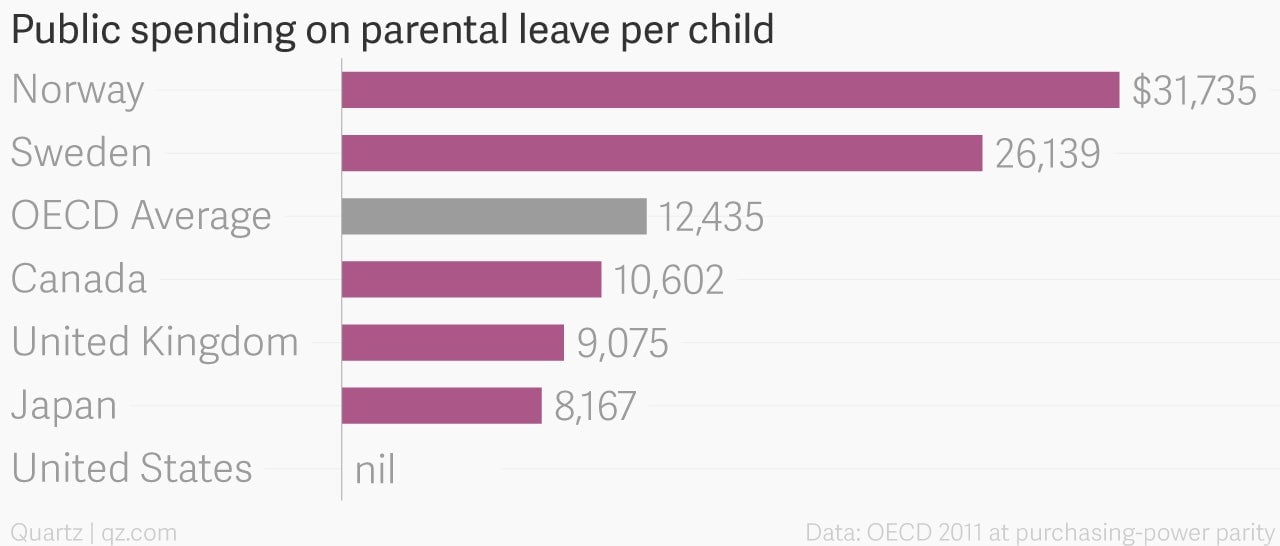Family-friendly labor policies are not working. The solution is better paternity leave
One of the most effective ways of boosting a country’s economy is to get more women into the workplace. Around the world, family-friendly policies are being set up to help make this much-needed shift.


One of the most effective ways of boosting a country’s economy is to get more women into the workplace. Around the world, family-friendly policies are being set up to help make this much-needed shift.
In the US, for instance, women spend nearly three times as many hours in paid work now than they did 50 years ago. And, though men aren’t making an equal contribution towards housework and child care, they are certainly contributing a lot more than in the past.

However, these well-meaning policies may actually be causing more harm than good. An unpublished study by Mallika Thomas at Cornell University cited by the New York Times shows that women in the US are 5% more likely to hold a job today, but 8% less likely to get promotions.
A new law in Chile that covered working mothers for the costs of childcare has resulted in up to 20% reduction in overall pay for women. A decade-old law in Spain that gave mothers to right to part-time work has caused decline in the number of full-time jobs available to all women—companies are 6% less likely to hire women, 37% less likely to promote them, and 45% more likely to dismiss them from their jobs. In some other European countries, generous maternity leave has led to fewer women acquiring managerial jobs.
Many factors are contributing to such policies backfiring. In Chile, for instance, childcare payments were not supported by the government but were the responsibility of the companies hiring women. In Spain, time away from work meant that women didn’t get enough time to hone their skills and missed out on winning promotions.
Some problems could be fixed by state support. Others may require institutional change. One solution is to encourage men to play a more equal role at home.
While the International Labour Organization has recommended 14 weeks paid leave for mothers, it does not have any policies in places for fathers. As a result, 185 countries in the world offer mothers some leave paid for by the state, but only a handful countries offer a similar deal for fathers.

Some countries, such as the UK, have attempted to combine paternal and maternal leave, letting parents choose who takes time off and when. However, because men tend to earn more than women, it hasn’t really encouraged fathers to stay at home more.
A better approach has been taken by Italy and Portugal, who have made paternal leave compulsory. Better still, Sweden offers daily bonuses—of almost $6 for up to 270 days—to parents who share their leave more equally.
The positive outcomes of men contributing more equally to childcare are beginning to show. A study cited by The Economist shows that 50% of men who took paternal leave claimed to change diapers daily. Of men that did not take leave, only 40% did so. Even though there are no longterm studies on these effects, the direction of the results seems positive. A Norwegian study cited by The Economist found that paternity leave improved a child’s performance in secondary school—especially daughters.
There is no easy fix to fighting centuries of gender discrimination. However, sensible economic policies can only help. If for nothing else, ensuring that fathers play a more equal role will help boost the global economy by freeing up women to get new jobs or progress in the ones they already have.